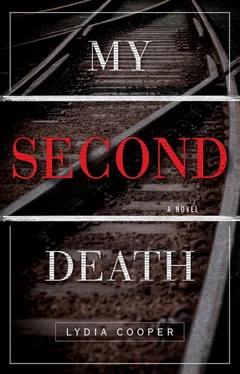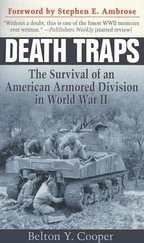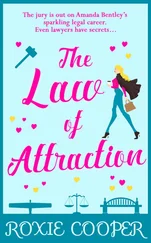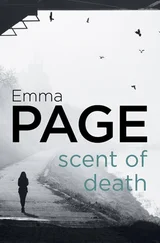I finish the translation and go back to the apartment. Everything seems brighter, sharper, inside. Even shadows are razor-edged. I don’t know if it’s just the scintillation of the unknown, the sharp tang of death and disaster haunting every corner of the cheap construction, but every minute in the apartment, every moment since my decision to move out of my parents’ garage, has felt like holding a live butterfly in my cupped hands, something frantically alive and almost unbearably fragile.
I think I like the way I feel.
Aidan is at the sink draining a pot of spaghetti.
I sling my backpack by the door.
“Hey,” he says. “I made enough for two. You want some?”
“Yeah.” The word sounds bald, awkward. I don’t know what else to add. I could thank him. That might be the polite thing to do. But I didn’t ask him to cook for me. So I say, “I’m pretty hungry.”
“Good.”
He pours the drained pasta into two bowls and takes them to the kitchen table. I edge behind him and wash my hands at the sink.
“Do you drink wine?” he asks.
“What?”
He points to a cheap bottle of cabernet with cartoon animals on the label. I shrug and he pours wine into two plastic cups. He sets one cup on the table near me and takes his cup and a bowl of pasta and goes to the living room. He stands in the doorway and shifts his weight. I sit down at the table and reach for the cup and drink for a long time and then set the cup down. The wine eases through me. Settles in my stomach like a warm fist.
“You can sit.”
He breathes out and comes quickly and sits down at the table across from me.
He looks at his plastic cup. His lips part like he wants to say something.
I hold myself still.
“How was your day?”
I say, “Shit.”
“What?”
I spread my hands. I don’t understand how people can do this — the talking. The meaningless mutterings. “Are you going to just pretend you didn’t hear me leave last night? Is this some — is this normal? I mean, I’m serious here. I don’t understand you. But can we at least — can you just, I don’t know, talk about real stuff. Say things that are true and that matter .”
He shuts his mouth. Looks down at his bowl. Then he looks back up. “It’s not my business where you go.” His thumb plays with the edge of his bowl, traces shapes on it. “You know? I mean, I don’t want to know. I’m, we’re both adults.”
He sounds awkward, his words stiff, like they are uncomfortable in his mouth.
“Fine.” I wave my hand. “So you’re not curious. That’s your business. But I am curious about you.” I point my fork at him. “I want answers.” What I really want to ask is, Did you kill and skin a man in the abandoned house across the street? But if his answer is no, I’m no closer to the truth and that much closer to a phone call to the cops and a lifetime playing with Play-Doh in a room that smells like SpaghettiOs and vomit.
“Start with that murder thing you said at my parents’ house,” I say. “What’s that about?”
“My — you mean, my mom?” He sits back in the chair. Puts his fingers over his mouth, and then buries his hand in his lap. “I didn’t think you were interested. You didn’t sound particularly happy about it at your parents’ house.”
“I’m not interested. If your mother died ten years ago and the cops never solved the case then there’s nothing anyone can do about it. Which begs the question: Why bring it up? Why corner me, a total stranger, and start going on about solving murders?”
I lean forward. His head moves back.
If anyone sketched the two of us, I would look like a lion and he would be a gazelle transfixed between terror and oblivion.
“Even by my abysmal standards of normal interactions, that’s bizarre. So talk.”
He clears his throat. Then he looks down at his bowl. He lays his fork down and reaches for his cup. He drinks, and then takes a deep breath.
“Okay. So, well, the thing is, I was a kid when my mother—” His voice catches. He takes a breath, carefully. As if he’s tasting the air. “My mom died. Eleven years ago. She died of asphyxiation in a massive house fire. We — my sister and I — were at my father’s house when it happened. The police found two separate origin points for the fire, so they figure it was arson. The case was ruled a homicide but it wasn’t ever solved.”
I lean back in my seat.
“Okay.”
“Okay, what?” he says.
“Okay, I get it. You want me to find the asshole who killed your mother and you want me to go Son of Sam on them. Blow them to kingdom come.”
The skin on his face slackens. “Wha — no! No, of course not. I don’t want — you don’t kill people.”
He says it as if I’ve proposed that the sun rises from the west and he is correcting me, gently but firmly.
“You don’t know that.” I drain the rest of my wine and set the empty cup down. A droplet shivers on the rim before racing crookedly to the chipped plastic tabletop. “My brother told you that but he also told you about the guy I killed when I was ten, and about my last roommate being hospitalized. You’re hoping I’m like some personal gorgon, able to be unveiled at your whim and turn your enemies to stone.”
“No.”
“Then what?”
He leans forward. His fingertips whiten on the edge of the table. “Your brother said you can’t feel pity or, well, and you can’t like anyone. And I saw you at your house. What you said to your mother. You tell the truth because you don’t care how it feels to the person you’re talking to. I want the truth. That’s all. I want someone who will find out the truth and tell me.”
I look at him. “So you already know who did it.”
His eyelids droop. He lowers his head. His shoulders rise when he takes a breath. “No,” he says. “I don’t know. I want you to find out.” His voice is a whisper. But I can hear him and I know that he is lying.
“This is stupid.” I stand up and take my empty bowl to the sink. “Why would you stalk me to my parents’ house just to ask me to tell you who killed your mother when you already know, or at least have a pretty good guess?”
“I don’t know.” He slams his palm flat on the table. The sound startles me and I jump.
His breathing is uneven.
I grip the edge of the sink.
“I’m sorry,” he says. “God, I’m really sorry. It’s just, my dad and my sister act like — well, they don’t ever talk about it and they never talk about anything, or go visit — I mean, my family never gets together. Not all of them. I think we need to bring everything into the open, to really talk about what happened, if we’re ever going to deal, you know? Only, I was really young when it happened. Sometimes it feels like everyone else knows while I’m just guessing. Maybe no one knows what really happened. But I need to. I need to know the truth and deal with it. I need to talk with sister and my dad about stuff instead of everything just, you know, festering.”
“Go visit who?”
“What?”
“Your family never visits who?”
Aidan rubs his forehead with his palm. Then he smoothes his palm over the back of his neck and drops his hand to the table. He looks at his upturned palms.
“I have a sister in an assisted living facility. She sort of lost it when my mom died. No one ever visits her or talks about her. Like she doesn’t exist anymore.”
For a while I stand at the sink and watch him.
I was right. His story isn’t interesting. The family secret that keeps them all apart is either the fact that his assisted-living sister killed their mother and then tried to off herself, or the mother killed herself and tried to take the sister with her. It won’t take much time or energy to figure out which it is, and, if I do figure it out, the knowledge won’t change anything. It occurs to me that I could probably do this, solve his family’s sordid little mystery. It’s a finite group of suspects, unlike the Case of the Corpse Across the Street.
Читать дальше












